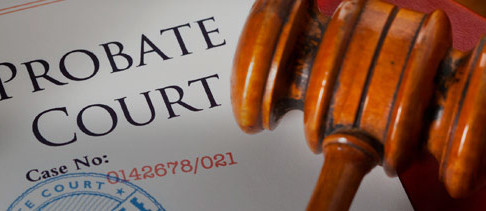Which Assets Should You Leave Out of Your Revocable Trust in Maryland?

A revocable living trust is a powerful way to simplify the probate process for your surviving loved ones. If properly structured, a trust can enable your property to bypass probate in Maryland, which can save time and reduce costs. Most revocable trusts include a variety of assets, including real estate or investment properties, bank […]
 Posted by reichertlegal
Posted by reichertlegal- Posted in Estate Planning Annapolis Maryland, Estate Planning Anne Arundel County Maryland, Estate Planning Attorney Pikesville Maryland, Estate Planning Baltimore County, Estate Planning Baltimore Maryland, Estate Planning Columbia Maryland, Estate Planning Ellicott City Maryland, Estate Planning Frederick Maryland, Estate Planning Howard County, Estate Planning Maryland, Estate Planning Montgomery County Maryland, Estate Planning Prince George's County Maryland, Trusts Attorney Baltimore Maryland, Uncategorized, Wills & Trusts Anne Arundel County Maryland, Wills & Trusts Frederick Maryland, Wills & Trusts Howard County Maryland, Wills & Trusts Maryland, Wills & Trusts Prince George's County Maryland
 Oct, 23, 2025
Oct, 23, 2025 No Comments.
No Comments.
Can a Non-U.S. Citizen Create a Last Will and Testament in Maryland?

The short answer is yes, Maryland law allows non-U.S. citizens to create a Last Will and Testament provided they are at least 18 years of age and of sound mind. Keep in mind that each state may have specific laws governing what a Will should contain, how it should be executed, and any legal requirements […]
 Posted by reichertlegal
Posted by reichertlegal- Posted in Estate Planning Annapolis Maryland, Estate Planning Anne Arundel County Maryland, Estate Planning Baltimore County, Estate Planning Baltimore Maryland, Estate Planning Bethesda Maryland, Estate Planning Columbia Maryland, Estate Planning Howard County, Estate Planning Maryland, Estate Planning Montgomery County Maryland, Uncategorized, Wills & Trusts Anne Arundel County Maryland, Wills & Trusts Baltimore Maryland, Wills & Trusts Bowie Maryland, Wills & Trusts Chillum Maryland, Wills & Trusts Dundalk Maryland, Wills & Trusts Ellicott City Maryland, Wills & Trusts Glen Burnie Maryland, Wills & Trusts Lawyer Montgomery Maryland, Wills & Trusts Maryland, Wills & Trusts North Bethesda Maryland, Wills Baltimore Maryland
 Jan, 16, 2025
Jan, 16, 2025 No Comments.
No Comments.
New Estate and Gift Tax Exemption Levels for Maryland

The IRS recently announced an increase in federal estate and gift tax exemptions for 2025. While this change will mainly impact high-net-worth individuals, this may be a good time for you to revisit and reconsider your strategies for transferring wealth moving forward. The federal estate tax is a tax imposed on any transfer of […]
 Posted by reichertlegal
Posted by reichertlegal- Posted in Estate Planning Annapolis Maryland, Estate Planning Anne Arundel County Maryland, Estate Planning Attorney Pikesville Maryland, Estate Planning Baltimore County, Estate Planning Baltimore Maryland, Estate Planning Carroll County Maryland, Estate Planning Columbia Maryland, Estate Planning Frederick Maryland, Estate Planning Glen Burnie Maryland, Estate Planning Howard County, Estate Planning Montgomery County Maryland, Uncategorized
 Dec, 06, 2024
Dec, 06, 2024 No Comments.
No Comments.
What Should I Do with My Estate Plan If One of My Children Provides Most of the Caregiving?

In many instances, most of the caregiving may fall to one of your children. This could be due to several circumstances, most often proximity. If you are in this situation, you may have asked yourself how to fairly acknowledge the caregiving load one child has carried over another. Here are some strategies to consider […]
 Posted by reichertlegal
Posted by reichertlegal- Posted in Estate Planning Annapolis Maryland, Estate Planning Anne Arundel County Maryland, Estate Planning Baltimore County, Estate Planning Baltimore Maryland, Estate Planning Carroll County Maryland, Estate Planning Columbia Maryland, Estate Planning Hagerstown Maryland, Estate Planning Howard County, Estate Planning Montgomery County Maryland, Estate Planning Prince George's County Maryland
 Jul, 11, 2024
Jul, 11, 2024 No Comments.
No Comments.
Ways to Avoid Disputes Over Family Heirlooms

Family heirlooms can create problems among family members after a loved one has passed away. Even if the deceased had a will or trust in place, these documents may not address specific items, leaving family members the task of dividing up heirlooms fairly. This post explores ways to avoid disputes over family heirlooms. If […]
 Posted by reichertlegal
Posted by reichertlegal- Posted in Estate Administration Attorney Maryland, Estate Administration Baltimore County Maryland, Estate Administration Harford County Maryland, Estate Administration Howard County Maryland, Estate Administration Olney Maryland, Estate Administration Prince George's County, Estate Planning Anne Arundel County Maryland, Estate Planning Baltimore County, Estate Planning Baltimore Maryland, Estate Planning Glenmont Maryland, Uncategorized, Wills Baltimore Maryland, Wills Columbia Maryland
 Oct, 05, 2023
Oct, 05, 2023 No Comments.
No Comments.
Maryland Estate Planning Terms Defined

If you’re new to estate planning, you might feel overwhelmed. Any legal process can feel intimidating. In this post we will briefly define several key terms to give you a broader understanding of the subject so that, when you do decide to put an estate plan in place, you will have a better foundation. […]
 Posted by reichertlegal
Posted by reichertlegal- Posted in Estate Planning Annapolis Maryland, Estate Planning Anne Arundel County Maryland, Estate Planning Baltimore County, Estate Planning Baltimore Maryland, Estate Planning Columbia Maryland, Estate Planning Frederick Maryland, Estate Planning Howard County, Estate Planning Maryland, Estate Planning Montgomery County Maryland, Uncategorized
 Apr, 04, 2023
Apr, 04, 2023 No Comments.
No Comments.
What Are the Inheritance Rights of Adopted and Step-Children in Maryland?

In the state of Maryland, adoptive children lose all inheritance rights from their biological parents but gain full inheritance rights from their adoptive parents. If an adopted child is left out of a will, Maryland’s intestacy laws are used to determine the adoptive child’s share. Step-children do not acquire inheritance rights from their adoptive […]
Read More Posted by reichertlegal
Posted by reichertlegal- Posted in Attorney Baltimore Maryland, Estate Planning Anne Arundel County Maryland, Estate Planning Attorney North Bethesda Maryland, Estate Planning Baltimore County, Estate Planning Baltimore Maryland, Estate Planning Carroll County, Maryland Inheritance Laws, Uncategorized, Wills, Wills & Trusts Annapolis Maryland, Wills & Trusts Anne Arundel County Maryland, Wills & Trusts Ellicott City Maryland, Wills & Trusts Glen Burnie Maryland, Wills & Trusts Lawyer Montgomery Maryland
 Mar, 03, 2023
Mar, 03, 2023 No Comments.
No Comments.
Why You Should Talk to Your Parents About Estate Planning

Estate planning is something many families are inclined to put off however careful planning for the future can protect property and assets, as well as loved ones. An estate plan is not simply a matter of drafting a will; it is also a kindness to the surviving family members because it can relieve stress, help […]
 Posted by reichertlegal
Posted by reichertlegal- Posted in Durable Power of Attorney Baltimore, Durable Power of Attorney Maryland, Estate Planning Annapolis Maryland, Estate Planning Anne Arundel County Maryland, Estate Planning Baltimore County, Estate Planning Baltimore Maryland, Estate Planning Columbia Maryland, Estate Planning Dundalk Maryland, Estate Planning Glen Burnie Maryland, Family Lawyer Baltimore Maryland, Uncategorized
 Oct, 14, 2022
Oct, 14, 2022 No Comments.
No Comments.
What Is a Surviving Spouse Entitled to Receive Under Maryland’s Elective Share Statute?

Maryland’s Elective Share Statute was designed to prevent a surviving spouse from being disinherited. House Bill 99, signed by Governor Hogan in 2019, expanded the assets included in calculating what a surviving spouse could inherit. Under the previous bill, only probate assets were subject to the elective share statute. Under the augmented statute, non-probate […]
 Posted by reichertlegal
Posted by reichertlegal- Posted in Durable Power of Attorney Maryland, Estate Administration Attorney Maryland, Estate Administration Baltimore County Maryland, Estate Administration Carroll County Maryland, Estate Administration Frederick Maryland, Estate Administration Montgomery County Maryland, Estate Planning Anne Arundel County Maryland, Estate Planning Baltimore Maryland, Estate Planning Glen Burnie Maryland, Uncategorized
 Sep, 14, 2022
Sep, 14, 2022 No Comments.
No Comments.
Do I Need a Bond for the Personal Representative of my Maryland Estate?

Whether or not you need a bond for your personal representative depends on your specific circumstances. Generally, a personal representative bond is a surety bond to protect the beneficiaries of the estate against fiduciary misconduct. If the bond is in the form of an insurance, then there also needs to be a power of attorney […]
Read More Posted by reichertlegal
Posted by reichertlegal- Posted in Estate Administration Attorney Maryland, Estate Administration Baltimore County Maryland, Estate Administration Baltimore Maryland, Estate Administration Carroll County Maryland, Estate Administration Chillum Maryland, Estate Administration Clinton Maryland, Estate Administration Frederick Maryland, Estate Administration Glassmanor Maryland, Estate Administration Harford County Maryland, Estate Administration Howard County Maryland, Estate Administration Lawyer Maryland, Estate Administration Maryland, Estate Administration Montgomery County Maryland, Estate Administration Olney Maryland, Estate Administration Prince George's County, Estate Planning Annapolis Maryland, Estate Planning Anne Arundel County Maryland, Estate Planning Carroll County Maryland, Estate Planning Hagerstown Maryland, Estate Planning Rockville Maryland, Estate Planning Silver Spring Maryland
 Feb, 18, 2020
Feb, 18, 2020 Comments Off on Do I Need a Bond for the Personal Representative of my Maryland Estate?
Comments Off on Do I Need a Bond for the Personal Representative of my Maryland Estate?

 Free Confidential Consultation. Call Now! 410-299-4959
Free Confidential Consultation. Call Now! 410-299-4959 Join Us On Facebook
Join Us On Facebook Join Us On Twitter
Join Us On Twitter Join Us On In.com
Join Us On In.com Subscribe to RSS
Subscribe to RSS Follow Us On Google+
Follow Us On Google+ Subscribe Us On Youtube
Subscribe Us On Youtube Follow Us On Pinterest
Follow Us On Pinterest Follow Us On Instagram
Follow Us On Instagram Follow Us On Tumblr
Follow Us On Tumblr Subscribe Us On Flickr
Subscribe Us On Flickr